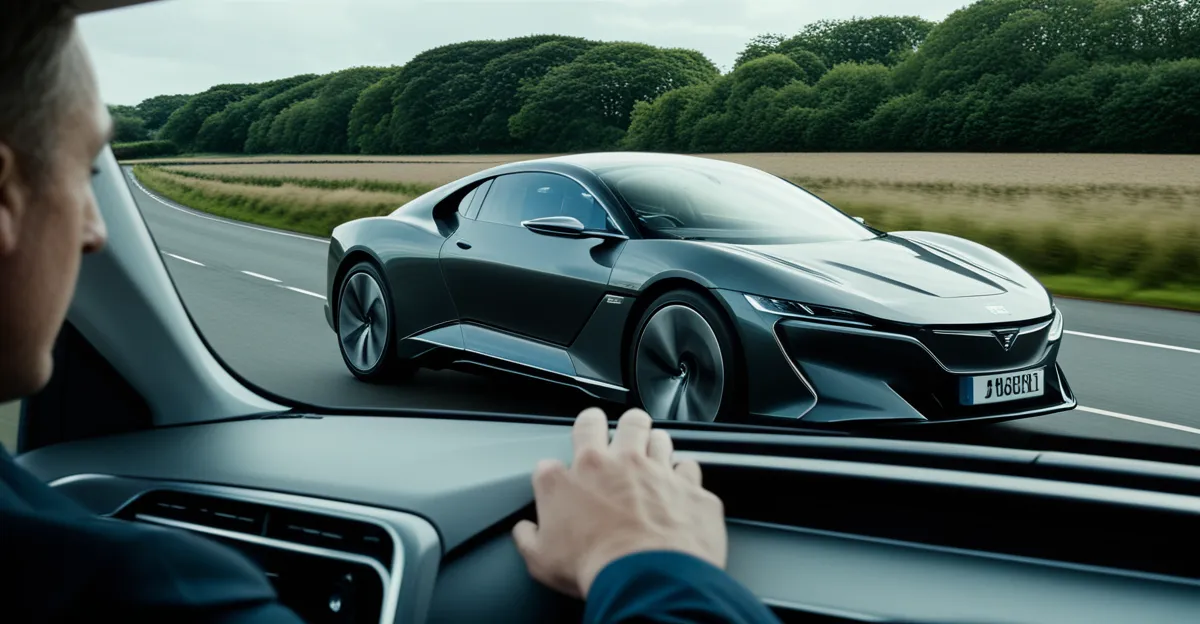Upcoming Automotive Technologies Shaping UK Driving
The future car technologies UK is rapidly evolving, with autonomous vehicles UK at the forefront. These self-driving cars utilize AI-driven systems to interpret surroundings, make decisions, and navigate safely. This advancement promises to reduce human error-caused accidents and improve traffic flow.
Alongside autonomy, connected cars UK enhance communication between vehicles and traffic infrastructure. Through vehicle-to-vehicle communication, connected cars UK can exchange real-time information about speed, hazards, and road conditions, improving safety and efficiency on UK roads. This technology supports cooperative driving, reducing congestion and enabling smoother journeys.
Also to read : How Can the UK Automotive Industry Drive Sustainability in the Next Decade?
Electric vehicle (EV) developments are also key in shaping future car technologies UK. Advances in battery technology are increasing range and decreasing charging times, making EVs more practical for everyday use. The combination of autonomous systems, connected technology, and electric propulsion is transforming UK driving into a smarter, greener, and safer experience.
This trio forms a foundation for the next generation of vehicles that UK drivers can expect to see more frequently on roads, reflecting a broader shift towards technological integration and sustainability.
The Influence of Smart Road Infrastructure
Smart road infrastructure UK is becoming a foundation for the next wave of transportation innovation. Central to this are intelligent transport systems that enhance traffic flow and safety by integrating real-time data from connected cars UK and other sources. These systems use sensors, cameras, and communication networks to optimise traffic signals and manage congestion dynamically.
Also read : How is the UK automotive industry addressing the demand for shared mobility solutions?
A key feature involves the integration of vehicle data with city infrastructure. When autonomous vehicles UK and connected cars UK communicate with smart road infrastructure UK, they can anticipate traffic changes, avoid hazards, and reduce travel delays. This seamless exchange of information helps create efficient and safer road environments.
The UK government has taken a proactive role in fostering these developments. Several UK-led pilot projects demonstrate smart traffic management’s potential, backed by government transport innovation efforts. These initiatives not only trial new technologies but also help establish standards necessary for widespread adoption.
By enabling vehicles and roadways to work collaboratively, smart road infrastructure UK sets the stage for smoother traffic patterns and a smarter future for UK transportation systems. This technology promises to support the growing presence of autonomous vehicles UK and connected cars UK on roads nationwide.
Societal and Legal Transformations
The rise of autonomous vehicles UK demands significant legal changes autonomous vehicles UK must navigate. To accommodate self-driving cars, UK driving law reform is steadily progressing, focusing on clarifying liability in accidents involving autonomous systems. For instance, laws now address how responsibility shifts between human drivers and AI software in driverless scenarios.
These legal changes autonomous vehicles UK introduce also affect insurance policies. Insurers are adapting to new risk profiles as traditional driver responsibilities evolve; this means insurance for autonomous vehicles UK increasingly considers manufacturer accountability alongside driver behavior.
Social impact driving technology is also reshaping how people use and perceive vehicles. As automation advances, there is potential for shifts in car ownership patterns, with more emphasis on shared mobility and fewer privately owned vehicles. Urban planning may similarly evolve, prioritising infrastructure that supports these new modes of transport.
Overall, UK driving law reform aims to balance innovation with safety and fairness, ensuring the transition to autonomous and electric cars is smooth and socially responsible. This includes ongoing consultation with technology developers, policymakers, and the public to address concerns and build trust in this transformative era.
Environmental and Safety Implications
The environmental impact electric vehicles UK is significant, as these vehicles play a crucial role in reducing carbon emissions from transport. By replacing petrol and diesel cars, electric vehicles help lower harmful pollutants, contributing to cleaner air and meeting climate targets. However, challenges remain regarding battery production and end-of-life recycling, which require sustainable solutions.
Car safety technology UK is rapidly advancing with automated features designed to prevent accidents. Autonomous emergency braking, lane-keeping assist, and driver monitoring systems improve road safety by reducing human error—the leading cause of crashes. When combined with autonomous vehicles UK, these technologies promise transformative safety gains.
Emission reduction transport schemes increasingly rely on electrification and intelligent traffic management to cut congestion and pollution. For example, zero-emission zones in UK cities encourage the adoption of electric vehicles, aligning with broader environmental goals. Overall, these developments reflect a dual focus: enhancing safety while actively mitigating environmental harms in UK driving contexts.
Predicting the Daily Driving Experience in the UK
The future driving experience UK promises significant changes as everyday autonomous cars UK become more prevalent. Commuters can expect smoother, less stressful journeys, thanks to vehicles that self-navigate traffic and communicate with each other. This reduces congestion and improves punctuality, benefiting both urban and rural drivers.
Accessibility to these advanced vehicles is increasing, driven by improved affordability and an expanding infrastructure that supports smart mobility UK solutions. As adoption rates rise, more UK residents will have access to driverless technology, promoting inclusivity for those unable to drive traditionally.
Consumer concerns remain around safety, data privacy, and reliability of autonomous systems. Addressing these worries is essential for widespread acceptance. Continuous software updates and regulatory oversight aim to provide secure, trustworthy experiences.
In practical terms, the shift could enable more productive commute time since drivers become passengers, freeing them for work or relaxation. Furthermore, smart routing and real-time traffic adjustments from smart mobility UK networks will personalize travel, adapting routes dynamically to changing conditions. This evolving landscape offers a promising, efficient, and user-friendly driving future in the UK.







